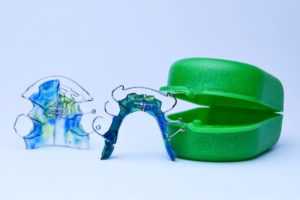Pediatric Dentist In Delhi
Frequently Asked Questions
When Should I Schedule my Child's First Visit to the Dentist?
Most parents are unsure about when to take a child to a dentist. Ideally a child’s first visit should be when the first tooth erupts in the mouth and no later than age one to two. From the first visit onward, we recommend that children come in every six months unless an emergency dental problem comes up.
What Happens at the Child's First Dental Visit?
The first visit is an orientation visit where the child gets familiar with the dental office, dental chair and instruments. This visit is use by the dentist to develop a rapport with the child and create trust. A check-up of the child’s mouth is advisable.During the examination your dentist will check your child’s existing teeth for decay, examine your child’s bite, and look for any potential problems with the gums, jaw and oral tissues. If indicated, the dentist will clean any teeth and assess the need for fluoride.
How can I Prepare My Child for the First Dental Visit?
- To prepare the child to be comfortable in the dental surroundings, parents must start preparing the child a few days prior to the appointment.
- At no time, the child should be made scared of a dentist by telling the child that we will ask the dentist to remove your teeth or give you an injection.
- Parents should speak about going to the dental appointments using positive connotation both before and after each visit.
- You should never talk of the words like drilling, painful, hurt, pain, injection and needle.
What if a Child has a Dental Emergency?
A tooth emergency can happen to a child, any time or anywhere. Your child might fall, break / knock out a tooth or might have swelling. Depending on the situation, you may need to consult your child’s paediatric dentist.
- If a child falls and permanent tooth comes out: Comfort and calm your child. Locate the tooth, pick it up and be careful not to touch the root. In case the tooth is not dirty or broken, try to place it into the empty socket in your child’s mouth. Have your child hold the tooth in place by biting on a clean cloth. But in case the tooth is dirty, broken or you cannot reinsert it, put the tooth in a glass of milk or a saltwater solution and contact your pediatric dentist immediately.
- If a child cuts or bites his/her lip, cheek or tongue: It can lead to bleeding or swelling and to relieve these symptoms, just apply direct pressure to the wound to stop the bleeding. If there is swelling, apply a cold compress. Finally, you can consult your dentist and give pain relief medication.
- If a child has a toothache: Visit your child’s dentist as soon as possible to find out what is the cause for the toothache. Do warm salt water rinses.
How Do I Clean My 1 Year Old’s Teeth?
Baby teeth begin to erupt around six months of age and before they erupt, it is advisable to clean their gums with a damp washcloth to wipe away any harmful bacteria. Once their teeth begin to emerge, take some cotton dipped it in warm water, squeeze out the excess water and wipe the teeth with this wet cotton. At 18 months you can use a soft baby tooth brush and a pea size amount of low fluoride toothpaste to brush your child’s teeth. The parents will have to help the child in brushing their teeth for the first few years.
What Happens if the Dental Infection is Left Untreated?
The most common symptom of a tooth infection is that the child complains of a toothache. If the sore and throbbing tooth is left untreated, it could become infected and spread to other places in your body. It can lead to a swelling which makes it difficult to fully open the mouth.
If the infection is not treated it can lead to severe symptoms like:
- Fever
- Swelling
- Difficulty in Breathing
- Difficulty in Swallowing
- Red Gums
- Severe Pain on Chewing or Biting






























































